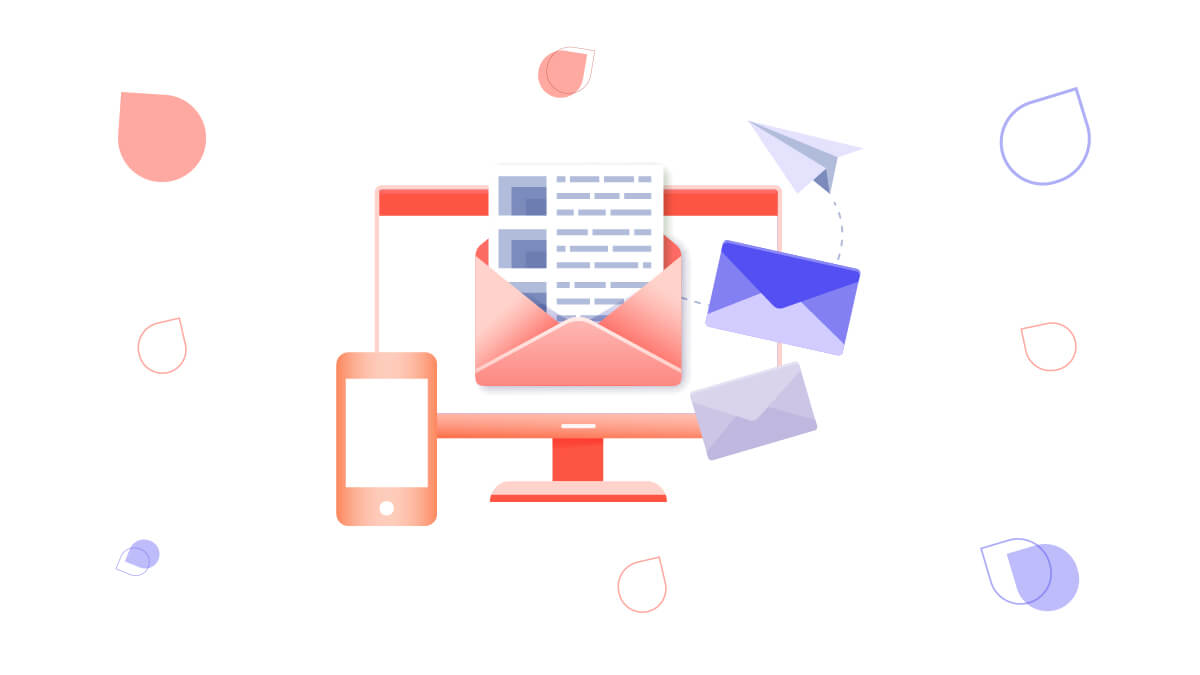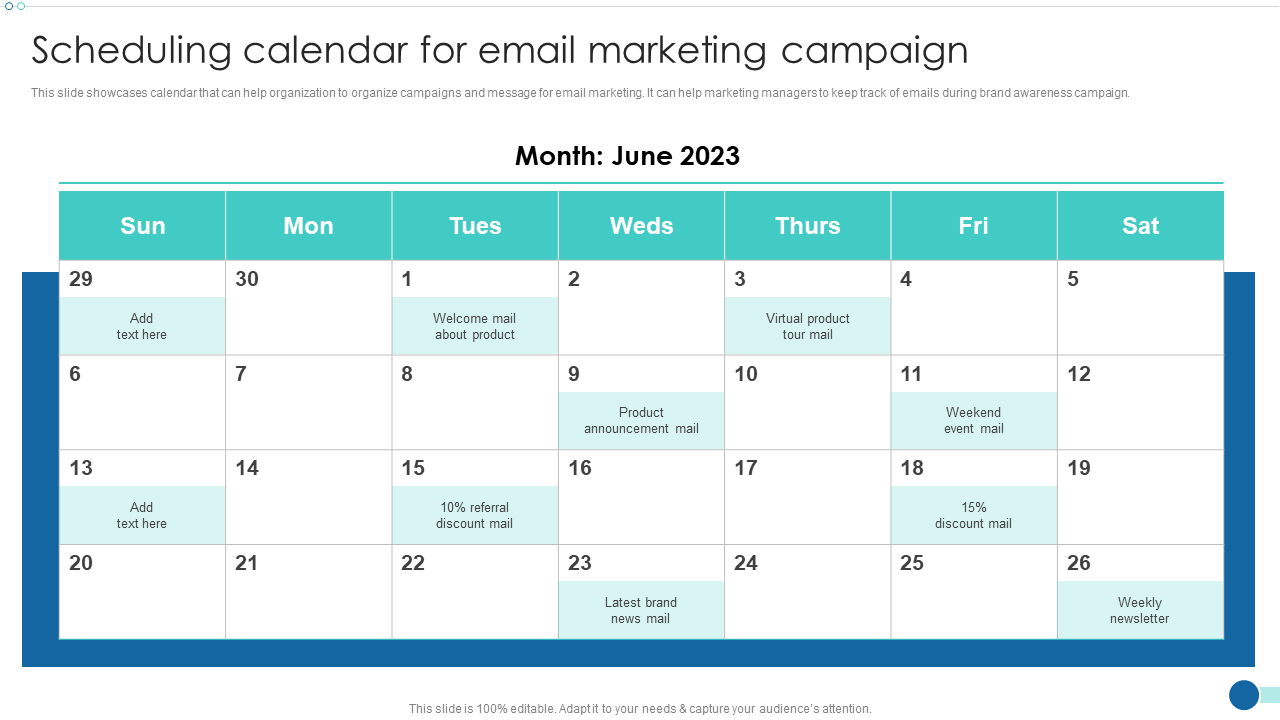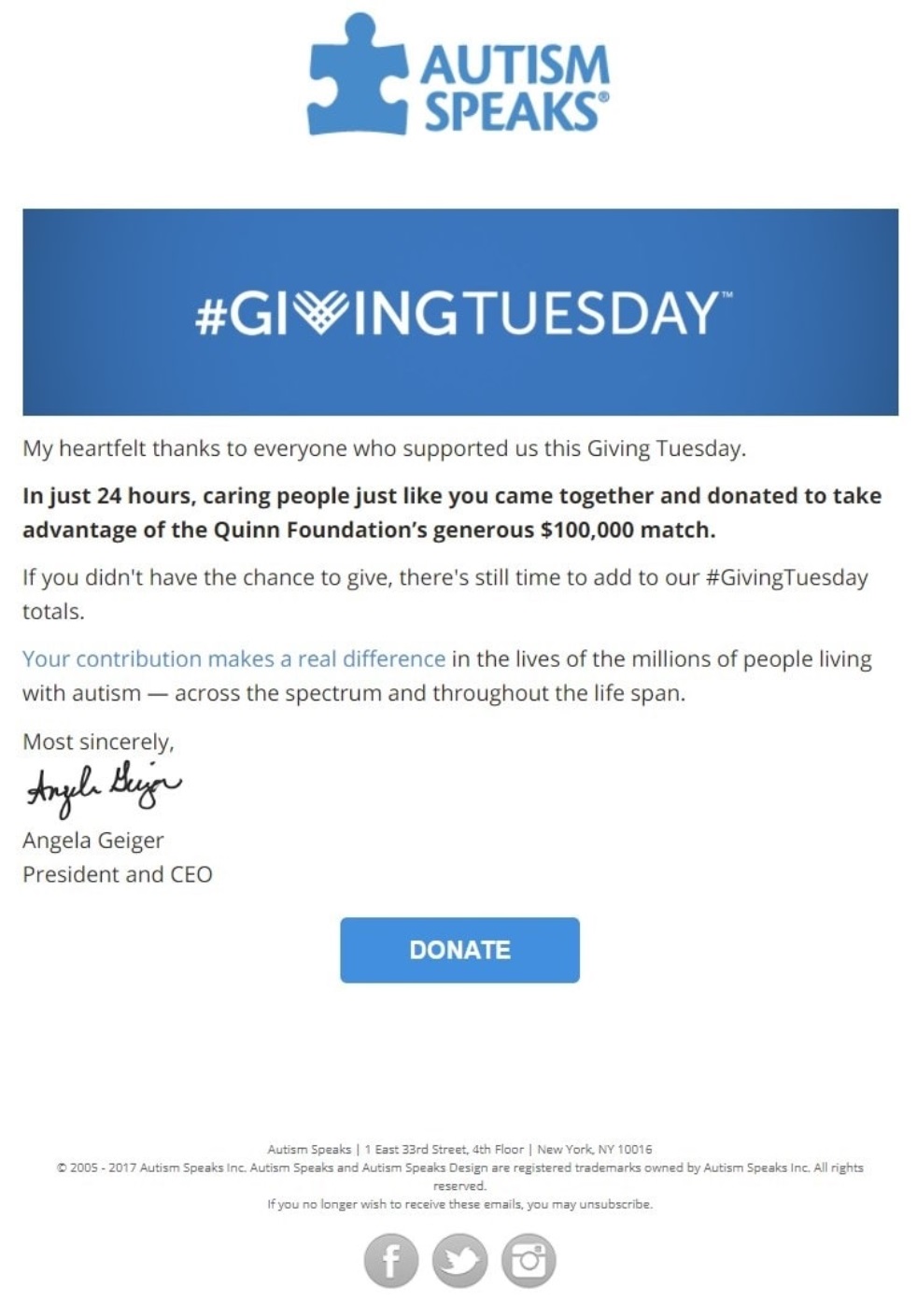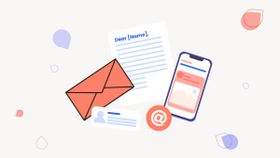Nonprofit Organizations: Using Email Marketing to Forge Relationships
Updated November 21, 2023.

Nonprofit organizations play a pivotal role in addressing various social, humanitarian, and environmental challenges. Their effectiveness largely depends on building strong relationships and maintaining clear communication with donors, volunteers, and supporters. Email marketing emerges as a powerful tool in their arsenal.
The nonprofit industry boasts an email open rate of 25.17%, surpassing the average of 21.33% for other industries. This statistic alone underscores the potential of email marketing for nonprofits. Today, we'll explore strategies to leverage nonprofit email marketing for growth.
Understanding your nonprofit target audience
To thrive, nonprofits need to engage with diverse groups of donors, volunteers, advocates, and beneficiaries. To truly be successful, they must intimately understand their target audience. This entails grasping who each group is, their motivations, interests, and needs. This is why the most successful nonprofits use audience segmentation strategies in their email marketing campaigns. Segmentation ensures that each group receives tailored content that resonates with them.
Email marketing categories for nonprofits
Nonprofits can choose from a variety of email marketing categories, each with a unique purpose and potential for different audience types. These categories include:
- Newsletters: Regular updates that keep supporters informed about your nonprofit's latest activities.
- Fundraising campaigns: Emails that drive donations and increase nonprofit revenue.
- Event invitations: Invitations to events, fundraisers, or volunteer opportunities.
- Drip campaigns: Automated series of emails to nurture relationships and guide potential donors.
- Surveys and feedback requests: Emails that gather insights and feedback from supporters.
- Membership renewals: Reminders to renew memberships and continue supporting the cause.
- Impact stories: Stories that illustrate the tangible impact of donors' contributions.
- Educational content: Information and resources related to your nonprofit's mission.
- Company announcements: Updates on organizational changes or achievements.
This list merely scratches the surface of possibilities for communicating with your target audience. With well-timed emails, you can engage with these crucial stakeholders, share updates, convey impact, and inspire action.
» Looking for inspiration? Explore some of the best email marketing examples
How to develop a marketing plan for nonprofit organizations
Creating a well-defined marketing plan is essential for nonprofit organizations. There's no single right way to develop one, but there are some key concepts and guidelines that can help:
- Define Your Goals This can include increasing donations by a certain dollar or percentage amount, raising awareness, and growing membership.
- Identify Your Target Audience Determine the key stakeholders, including donors, volunteers, supporters, and advocates.
- Choosing Email Marketing Categories for Each Audience Decide which email categories will be most impactful for each group. For instance, donors may respond well to impact stories.
- Set a Schedule Establish a consistent email schedule with occasional one-off emails for special announcements and events.
Pro tip:
Consider using a physical calendar to stay organized, similar to this:
» Looking for a head start? Check out our ultimate marketing plan template to streamline your nonprofit's success.
Structuring effective nonprofit email marketing campaigns
To craft compelling emails, follow a general email marketing structure that includes:
- A header with your nonprofit's logo and branding.
- Clear and concise body content with visually separated headers and sections.
- Call-to-action (CTA) buttons that entice readers to take desired actions.
- Contact information and social media links for further connection.
In this example, Autism Speaks checks off all the boxes for a Giving Tuesday campaign.
Crafting effective email marketing titles and introductions
Email marketing titles are the critical first step. They determine whether your emails get opened or ignored. Use concise and informative subject lines that highlight the email's key point. For instance:
- "Double your impact: Every donation matched 100% for the next 24 hours"
- "Join Us in Making Dreams Come True for Children in Need"
- "Will you help us give Selassie's village clean water?"
- "Exclusive Invitation: A Night of Inspiration and Giving"
Then, your email marketing introduction should be direct and quickly explain your offer and request to resonate with readers' interests while aligning with your mission.
Email marketing segmentation and personalization
The practice of marketing segmentation entails the division of your email list into separate groups, utilizing criteria like donation history, engagement levels, and demographics. The greater the degree of marketing segmentation, the greater the relevance of your emails. Consequently, this results in increased engagement and a higher rate of conversions.
Leveraging personalization is equally essential. For instance, send a personalized thank-you email to frequent donors or share volunteer opportunities with highly engaged supporters. You can also send special gifts or notes on membership anniversaries and birthdays to further show your audience that you care about the relationship.
» Interested in learning more? Discover the best ways to personalize your eCommerce store
Leveraging Mayple for nonprofit email marketing success
For nonprofits seeking to elevate their email marketing, consider Mayple. This digital marketing platform connects organizations with marketing experts. Their expertise complements your email marketing efforts, strengthening connections with donors, volunteers, and supporters. With Mayple, you'll gain benefits such as:
- Tailored strategies that align with nonprofit goals and target audience.
- Expertise in crafting compelling email subject lines, content, and calls-to-action.
- Assistance in segmenting email lists and personalizing content to maximize engagement.
- Continuous monitoring and optimization of your email campaigns for improved results.
Nurturing bonds beyond boundaries
At the end of the day, nonprofit email marketing is a potent strategy for fostering relationships with potential stakeholders. As you work to optimize your campaigns, remember to understand and segment your audience, choose the right email categories and topics, and craft well-structured emails with compelling titles and content. Consider a platform like Mayple to connect with nonprofit email marketing professionals who can help you accomplish your mission faster.








